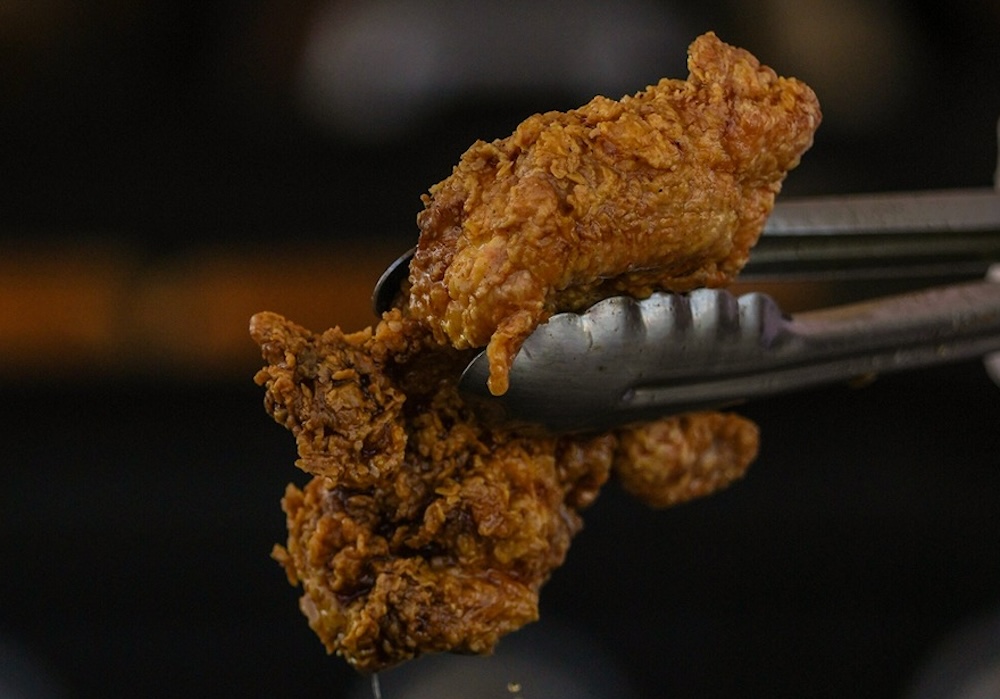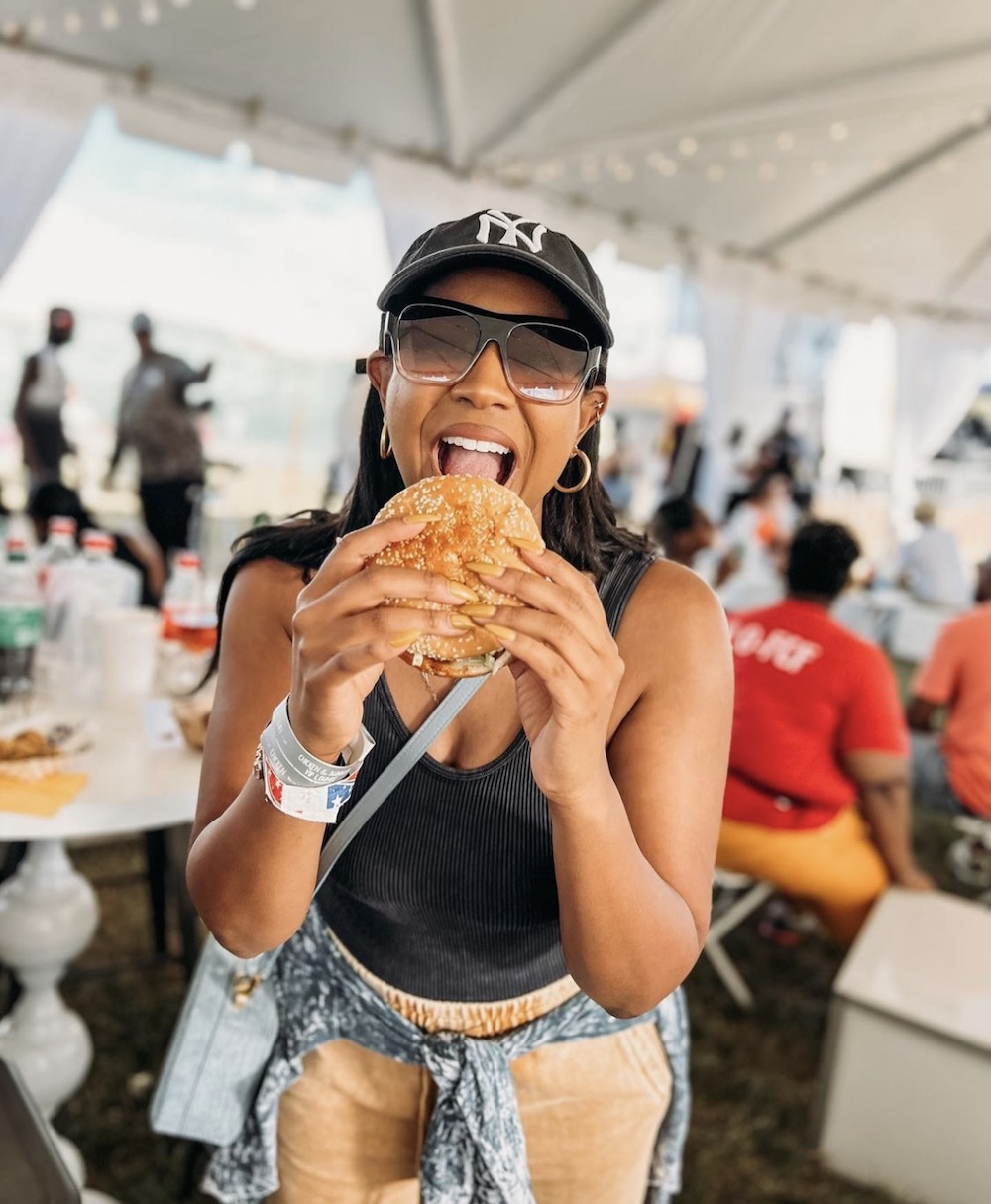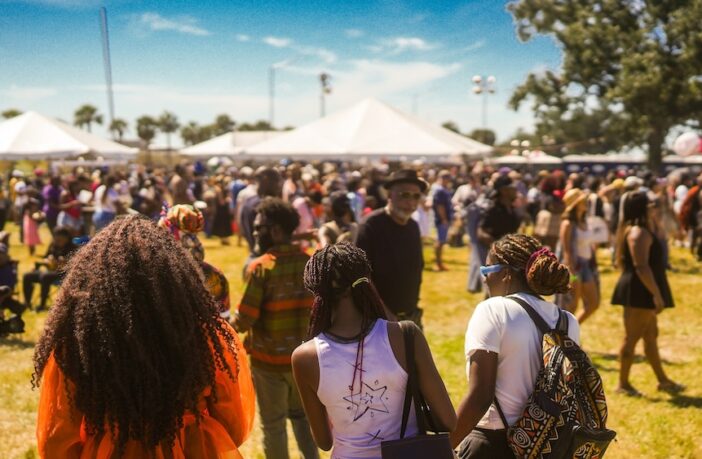Raising Cane’s, known for its popular chicken fingers and toast meal, is sponsoring the New Orleans Fried Chicken Festival, a celebration that merges food, music and culture in the heart of Crescent City. With Grammy-winning singer Teedra Moses headlining the event, the festival aims to showcase one thing Americans share in common—an undeniable love for fried chicken.
“My goal has always been to bring people together through the universal love of fried chicken. There’s something special about how food, especially a dish as beloved as fried chicken, can unite folks from all walks of life,” said Cleveland Spears, III, executive producer and founder of the National Fried Chicken Festival.
“For me, it’s more than just the flavors—it’s about creating a space where independently owned and mom-and-pop restaurants, many Black-owned, can shine on a national stage. These businesses bring their own unique spin to fried chicken, rooted in tradition, culture and creativity. We’re not just showcasing great food; we’re celebrating the people and stories behind it.”
This Southern comfort food, deeply intertwined with the Black community, has long been overshadowed by negative stereotypes involving watermelon and Aunt Jemima imagery. However, the true history of fried chicken is rooted in spirituality, religion and entrepreneurship.
 Image: National Fried Chicken Festival.
Image: National Fried Chicken Festival.
By the early 19th century, fried chicken had become a staple in Southern cuisine. However, during the era of forced labor and enslavement in the American South, fried chicken became a staple dish for white Southerners, particularly Scottish immigrants who preferred frying their chicken over baking or boiling it as the English did. Yet, the process of making fried chicken was transformed by the cultural influence of West Africans who, unlike their Scottish counterparts, traditionally fricasseed chicken. In West African culture, chickens are held in high regard, as sacred as cows in Hindu culture, and often used in religious ceremonies and sacrifices to communicate with ancestors.
When enslaved Africans were brought to America, they infused their methods into preparing fried chicken, adding deep flavors and distinctive seasoning. Their method of lightly frying chicken before immersing it in oil, along with a signature blend of spices, gave the fried chicken a distinctive taste. The first published American recipe for fried chicken came in 1825 from Mary Randolph, a white woman from Virginia, in her book The Virginia Housewife Or, Methodical Cook. But the commercial success of fried chicken, particularly in Gordonsville, Virginia—the so-called “Fried Chicken Capital of the World”—was driven by Black women who transformed it into an entrepreneurial success story.
Fried chicken holds a sacred place in the Black church and became a staple of Sunday dinners and church gatherings, with nicknames like “Gospel Bird” and “Sunday Cluck.” This connection to the church symbolizes the deep significance of fried chicken in the African American community as social and nutritional nourishment.
 Image: National Fried Chicken Festival.
Image: National Fried Chicken Festival.
The New Orleans Fried Chicken Festival is where food, culture and history intersect. Founded in 2016, the two-day outdoor event draws crowds from across the nation, celebrating the iconic dish while elevating the cultural significance of Southern food. In 2023, the festival attracted over 123,000 attendees, earning it the no. six spot on USA Today’s list of top Specialty Food Festivals. This year, festivalgoers can expect more than 40 world-class restaurants, each competing for titles like “Best Fried Chicken,” “Best Chicken Sandwich,” and the fan-voted “People’s Choice Award.”
Trevor Williams, founder and head chef of Catered To is also participating. “Catered To provides full-service catering and private chef services with a diverse menu. But we love showing up at Fried Chicken Festival and being a part of the New Orleans festival culture. It’s our second year at the fest and we’re excited to offer a new menu and our take on some southern cuisine classics.”
Back by popular demand, the HEINZ® “Food is Culture” stage will host discussions on the rich culinary traditions behind fried chicken, exploring how food serves as a vessel for cultural expression.
As festivalgoers flock to the New Orleans Lakefront, they’ll be reminded that fried chicken is more than just a dish—it’s about shared history. With its sacred roots in West Africa and now as a staple on Southern plates, fried chicken reminds us how food can bring us together. One Love!



